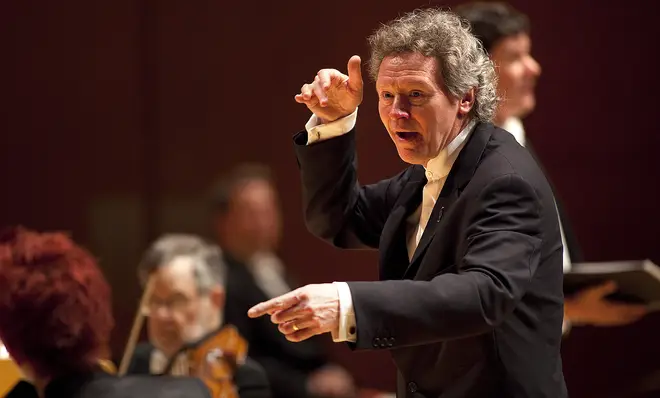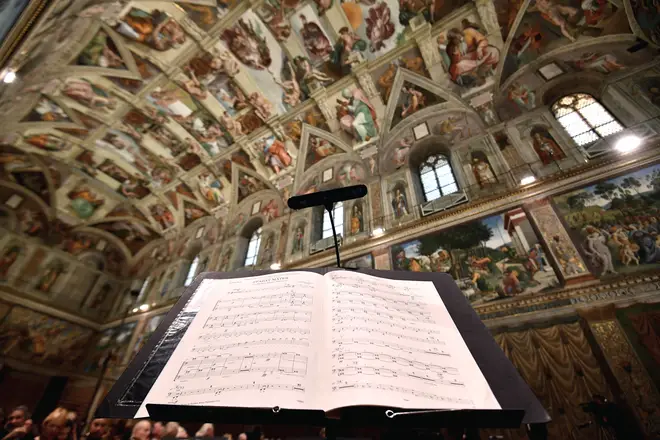On Air Now
Relaxing Evenings with Zeb Soanes 7pm - 10pm
5 August 2020, 12:47

A leading choral conductor condemns the government’s restrictions on choristers’ music-making.
With singing still forbidden inside places of worship around the country, Britain’s cathedral choir tradition faces its biggest threat in centuries.
Anglican cathedrals are set to lose £28.4m in income this year, not even counting Westminster Abbey, which alone faces a £12m shortfall this year.
All this means, among other difficulties, that cathedrals are struggling to maintain their training of child choristers.
Harry Christophers, one of the world’s leading choral directors, has said he finds it “totally bizarre that child choristers are at present allowed to sing in their school halls, but not in cathedrals”.
Aside from older pupils in years 10 to 13, who are deemed to be more vulnerable to the potential risk posed by flying droplets of saliva from singing, children are currently allowed to sing in schools from September.
Read more: Government says ‘no singing, wind or brass playing’ for older pupils in schools >

In an interview with The Times, Christophers said: “Think of the size of somewhere like St Paul’s Cathedral. Andrew Carwood [the director of music at St Paul’s] could give a huge amount of space to social distancing between his singers, if he was allowed to do so.”
The director added he would be happy to cut the number of singers, if necessary. “Thinking back to when I was a boy chorister at Canterbury Cathedral, we had six men in the choir – one alto, tenor and bass on each side – and we thought that was great. The important thing is that the tradition keeps going.”
Last month we heard that cathedral choirs would receive a much-needed £2m lifeline, as the Church Commissioners [the financial controllers for the Church of England] pledged to match the fundraising efforts of the Cathedral Choirs Emergency Fund, which has raised £830,000 already.
The Emergency Fund, backed by Christophers, has been raising money to safeguard the tradition of daily sung liturgy in England’s cathedrals. When the £2m lifeline comes in, cathedrals will be able to pay their Lay Clerks – adult cathedral singers – from September until the end of the year.
Read more: Cathedral choirs given £2m lifeline, as they fight to survive amid COVID-19 >

“Assuming cathedrals get back to some sort of sung services in September, the idea is that the money helps maintain the back rows [the paid adult singers] for the rest of the year at least,” Christophers says. “And our second aim is to help the cathedrals sustain their training of child choristers.”
So, when does the choral director think singing will return?
“Everything depends on the research by Declan Costello,” Christophers says, referring to government-funded research by an ENT consultant, who is measuring droplets and aerosols transmitted by singing, and wind and brass playing, in order to ascertain their safety amid the coronavirus crisis.
“Those results are expected in the third week of August. I know the Oxbridge chapels [which lie outside direct Church of England jurisdiction] hope to get their choristers back rehearsing in the first week of September.”